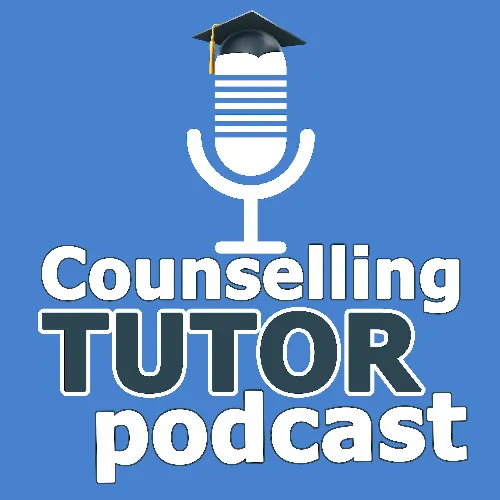008 – Real-World Counselling – Hidden Conditions – Immediacy – Therapeutic Process
- Author
- Ken Kelly and Rory Lees-Oakes
- Published
- Sat 02 Apr 2016
- Episode Link
- https://counsellingtutor.com/008-real-world-counselling-skills-carl-rogers-hidden-conditions-immediacy-and-therapeutic-process/
In the eighth episode of the Counselling Tutor Podcast, Ken Kelly and Rory Lees-Oakes discuss how counselling in the real world differs from skills practice in the classroom. 'Theory with Rory' looks at the hidden conditions of Carl Rogers, and Ken examines the skill of immediacy. Last but not least, the presenters define 'therapeutic process', and explain how you can identify when it is taking place.
Counselling in the Real World
How do counselling skills differ in the real world? Does it feel very different from working with peers in the classroom? Rory and Ken debate the differences between the two situations, and highlight the importance of making best use of your skills practice in college, to prepare you for the challenge of counselling clients in your placement.
Key tips include the following:
Avoid the temptation just to chat with peers during triad time; really use the time you have to practise skills.
Audio-record your skills session (with your peer's consent) and listen back to identify learning points.
Always bring real issues to your skills practice; even something apparently insignificant and mundane can lead to deep insights, while fabricated material rarely works well.
Use rating scales - for example, the Truax and Carkhuff Empathy Scale - to assess how you perform.
The Hidden Conditions
Rory examines the hidden conditions of Carl Rogers. The three core conditions are relatively well-known - though Rogers never actually used the term 'core conditions'! But in fact Rogers held that six conditions are necessary and sufficient to bring about constructive personality change:
that the counsellor makes psychological contact with the client (i.e., they are 'on the same page' psychologically)
that the client is incongruent (vulnerable or anxious)
that the counsellor is congruent (genuine)
that the counsellor experiences unconditional positive regard (UPR) - non-judgemental warmth and acceptance - towards the client
that the counsellor feels empathy towards the client
that the client receives the congruence, UPR and empathy of the counsellor.
Numbers 1, 2 and 6 of the conditions are known as the 'hidden' (or the 'counsellor's') conditions. Tony Merry has referred to these as the 'lost' conditions, and it is these that Rory examines here.
Psychological contact (condition 1) can be made only if the client is capable of giving informed consent; Rory discusses a number of barriers to this autonomy, giving examples from real life.
Some clients may be seeking not counselling but friendship, or expert advice (e.g. on debt management or the law). Or the client may not be ready for counselling, perhaps being at stage 1 or 2 of the seven stages of process (and so not yet open to change). In these cases, condition 2 would not be met, and referral to a more suitable service would be the ethical course of action.
Finally, if a client is unable to trust the counsellor (for example, due to transference), or the two simply do not gel, condition 6 will not be met. If this difficulty cannot be resolved, referral to another therapist would be appropriate.
Immediacy
Ken outlines the potential risks of this advanced counselling skill, and looks at when it is appropriate to use it in therapy. In immediacy,
